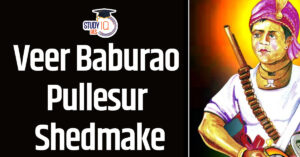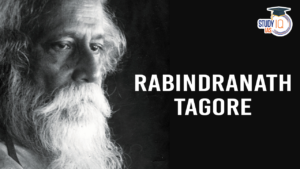Table of Contents
On August 16th, India commemorates the death anniversary of Atal Bihari Vajpayee, the 10th Prime Minister of India, renowned for his unifying leadership and democratic values. As a distinguished statesman, poet, and visionary leader, Vajpayee’s legacy continues to influence India’s political and social landscape profoundly.
Atal Bihari Vajpayee Death Anniversary
On August 16th, India marks the death anniversary of Atal Bihari Vajpayee, the 10th Prime Minister, celebrated for his unifying leadership and democratic values. Born on December 25, 1924, Vajpayee’s legacy is defined by his transformative policies, including the Pokhran-II nuclear tests and the Golden Quadrilateral project. His commitment to economic reforms and diplomatic efforts, such as the Lahore Bus Yatra, shaped India’s modern trajectory. Vajpayee’s passing on August 16, 2018, left a lasting impact, with his contributions continuing to inspire and guide future generations. His vision for a progressive and inclusive India remains influential.
Atal Bihari Vajpayee Biography
Atal Bihari Vajpayee was an Indian politician and poet who served three terms as the 10th Prime Minister of India, first for a term of 13 days in 1996, then for a period of 13 months from 1998 to 1999, followed by a full term from 1999 to 2004. Vajpayee was one of the co-founders and a senior leader of the BJP.
A former Indian prime minister was Atal Bihari Vajpayee. He visited the office three times, the first time for 13 days in 1996, the second time for 13 months in 1998–1999, and the third time for 13 days in 1999–2004 of India. He started in politics as a Bharatiya Jana Sangh member of parliament before serving as the minister of external affairs in the Janata government under Morarji Desai.
He and the other Bharatiya Jana Sangh members established the Bharatiya Janata Party (BJP) after the Janata administration was overthrown. He played a key role in the BJP’s nationwide growth during the following 15 years. As a result, the BJP won the most votes in the general elections of 1996, 1998, and 1999, and he was elected prime minister. Throughout his career, he was elected twice to the Rajya Sabha and ten times to the Lok Sabha.
| Important Facts about Atal Bihari Vajpayee | |
| Full Name | Atal Bihari Vajpayee |
| Born | 25th December 1924 |
| Died on | 16th August 2018 |
| Father’s Name | Krishna Bihari Vajpayee |
| Mother’s Name | Krishna Devi |
| City | Gwalior |
| School | Saraswati Shishu Mandir |
| College (B.A.) | Gwalior’s Victoria College (now Maharani Laxmi Bai Govt. College of Excellence) |
| College (P.G) | DAV College, Kanpur |
| Political Party | Bhartiya Janta Party (BJP) |
| Profession | Politicians, Writers, and Poets |
| Awards | Bharat Ratna, Padma Vibhushan |
Atal Bihari Vajpayee Death Anniversary
On August 16, leaders from a variety of political backgrounds and connections gathered at the “Sadaiv Atal” memorial in Delhi as the country celebrated the melancholy event of the death anniversary of former Prime Minister Atal Bihari Vajpayee. On the fifth anniversary of Atal Bihari Vajpayee’s passing, Vice President Jagdeep Dhankhar, Amit Shah, Defence Minister Rajnath Singh, Nitin Gadkari, Rajya Sabha Deputy Chairman Harivansh, Praful Patel, Arjun Ram Meghwal, Union Minister Anupriya Patel, and HAM’s Jitan Ram also paid tribute to him. On the anniversary of his passing, Namita Kaur Bhattacharya, the foster daughter of former PM Atal Bihari, presents flowers at “Saidav Atal.”
Atal Bihari Vajpayee Cause of Death
On June 11, 2018, Vajpayee was critically ill and brought to the hospital. He spent more than two months in the hospital due to his deteriorating condition. On August 16, 2018, he passed away at the All India Institute of Medical Sciences (AIIMS), New, Delhi.
Atal Bihari Vajpayee Early Life and Education
| Details | |
|---|---|
| Date of Birth | December 25, 1924 |
| Place of Birth | Gwalior, Madhya Pradesh, India |
| Father | Krishna Bihari Vajpayee (Schoolteacher) |
| Mother | Krishnaben (Homemaker) |
| Early Education | Local schools in Gwalior |
| Bachelor’s Degree | Government College, Gwalior (Political Science) |
| Master’s Degree | Delhi University (Political Science) |
| Notable Activities | Actively involved in political activities during student years |
Atal Bihari Vajpayee was born on December 25, 1924, in Gwalior, Madhya Pradesh, into a humble family. His father, Krishna Bihari Vajpayee, was a schoolteacher and his mother, Krishnaben, was a homemaker. Vajpayee’s early life was marked by a keen interest in literature and politics, influenced by his family’s values and the socio-political climate of pre-independence India.
Vajpayee attended the local schools in Gwalior before moving to Delhi for higher education. He graduated with a Bachelor’s degree in Political Science from the Government College in Gwalior. His academic journey continued at the Delhi University, where he earned a Master’s degree in Political Science. During his student years, Vajpayee was actively involved in political activities, inspired by the ideals of nationalism and public service. His education and early experiences laid the groundwork for his future political career and leadership.
Atal Bihari Vajpayee Political Career
- 1951: Joined Bharatiya Jana Sangh (BJS), marking the start of his formal political career.
- Northern Region: Appointed as the national secretary for the Northern Region of BJS.
- Association with Syama Prasad Mukherjee: Frequently appeared alongside the party leader; participated in the Kashmir fast-until-death protest against alleged discrimination in 1954. Mukherjee was detained and died in prison during this protest.
- 1944: Elected general secretary of the Arya Samaj’s youth branch, Arya Kumar Sabha, in Gwalior.
- 1939: Became a Swayamsevak (volunteer) in the Rashtriya Swayamsevak Sangh (RSS).
- 1942: Actively joined RSS, which later encouraged his involvement with Bharatiya Jana Sangh.
- 1957 Indian General Elections: Ran for Lok Sabha; defeated in Mathura by Raja Mahendra Pratap but won the Balrampur seat.
- Recognition by Pandit Jawaharlal Nehru: Praised Vajpayee’s parliamentary skills and foresaw his future role as Prime Minister of India.
| Position | Party | Year |
| MP, Balrampur | Bhartiya Jana Sangh | 1957-1962 |
| MP, Uttar Pradesh, Rajya Sabha | Bhartiya Jana Sangh | 1962-1968 |
| MP, Gwalior | Bhartiya Jana Sangh | 1971 |
| MP, New Delhi | Janata Party | 1977 |
| Union Cabinet Minister (External Affairs) | Janata Party | 1977-1979 |
| MP, Madhya Pradesh | Bhartiya Janta Party | 1986 |
| Prime Minister of India | Bhartiya Janta Party | 1996 |
| Prime Minister of India | Bhartiya Janta Party | 1998-1999 |
| Prime Minister of India | Bhartiya Janta Party | 1999-2004 |
Atal Bihari Vajpayee History
Atal Bihari Vajpayee’s political journey saw key milestones: In 1996, despite BJP being the largest party, Vajpayee’s government lasted only 13 days due to lack of majority. In 1998, he returned as Prime Minister with the NDA but lost power in 1999 when AIADMK withdrew support. Major achievements included nuclear tests in Pokhran, the Delhi-Lahore bus service, and managing the Kargil War. His third term (1999-2004) featured significant infrastructure projects and educational reforms. However, his tenure faced challenges, including pressures from the RSS and handling of the Ayodhya issue and Gujarat riots. The 2004 elections saw the UPA take over.
Atal Bihari Vajpayee Retirement
Atal Bihari Vajpayee decided not to continue serving as the opposition leader after stepping down as prime minister. He continues to lead the NDA, nevertheless. He announced his retirement from active politics in December 2005 and his decision not to run in the following general elections.
Atal Bihari Vajpayee Personal Life
Throughout his whole life, Atal Bihari Vajpayee stayed single. Namita Bhattacharya is the name of his adopted daughter. Indian classical music and dancing were favourites of Vajpayee’s. He also enjoyed poetry and produced some of his own.
He had a stroke in 2009, which significantly affected his capacity for speech and thought. He was confined to a wheelchair in his final years and had trouble recognising individuals. Additionally, throughout the last few years of his life, he did not appear at any public events.
Atal Bihari Vajpayee Books
Atal Bihari Vajpayee has written a few books, given below is the list of all the books written by Atal Bihari Vajpayee:
- National Integration – 1961
- India’s Foreign Policy: New Dimensions – 1977
- Dynamics of an Open Society – 1977
- Assam Problem: Repression no Solution – 1981
- Atal Bihari Vaj Mem Tina Dasaka – 1992
- Kucha Lekha, Kucha Bhashana – 1996
- Sekyularavada: Bharatiya Parikalpana (Dr. Rajendra Prasada Smaraka Vyakhyanamala) – 1996
- Rajaniti ki Rapatili Rahem – 1997
- Back to Square One – 1998
- Decisive Days – 1999
- Sakti Se Santi – 1999
- Pradhan Mantri Atal Bihari Vajpayee Ke Chune Hue Bhashana – 2000
- Values, Vision & Verses of Vajpayee: India’s Man of Destiny – 2001
- India’s Perspectives on ASEAN and the Asia-Pacific Region – 2003
Atal Bihari Vajpayee Awards
The Bharat Ratna Award, India’s highest civilian honour, was given to Atal Bihari Vajpayee. On March 27, 2015, at his home, the then-President of India, Pranab Mukherjee, presented him with this honour. He also received the Padma Vibhushan (1992), the Outstanding Parliamentarian Award (1994), and the Lokmanya Tilak Award (1994).
- Padma Vibhushan (1992): India’s second-highest civilian award, recognizing his contributions to public life and politics.
- Bharat Ratna (2015): India’s highest civilian award, conferred for his exceptional service to the nation in various fields, including politics and literature.
- Himachal Pradesh State Award: Given for his significant contributions to the development of Himachal Pradesh during his tenure as Prime Minister.
- Lokmanya Tilak Award: Recognized for his contributions to Indian politics and public life, particularly for his role in shaping modern India.


 Jyotiba Phule Biography, Facts and Socia...
Jyotiba Phule Biography, Facts and Socia...
 Veer Baburao Pullesur Shedmake: The Forg...
Veer Baburao Pullesur Shedmake: The Forg...
 Rabindranath Tagore Biography: Life, Ach...
Rabindranath Tagore Biography: Life, Ach...





















